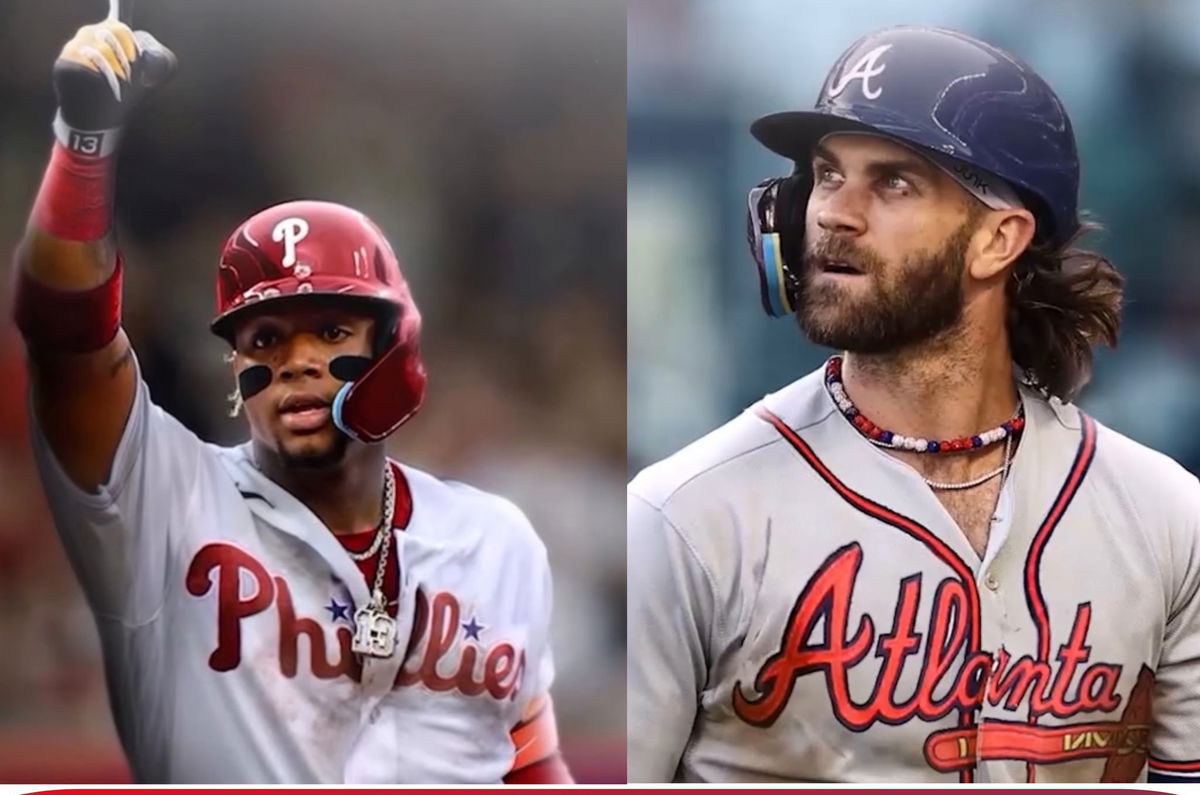

The noise of the baseball striking Bryce Harper’s elbow resonated louder than the stands at Citizens Bank Park on May 27th of 2025; what was meant to be a typical Phillies versus Braves match swiftly became tense. Harper, the heart of Philadelphia’s lineup, winced and dropped his bat, gripping the same elbow he’d had surgically repaired. Fans roared in anger. The Braves’ dugout stayed still. Spencer Strider’s 95 mph fastball had found its target, and now, all eyes turned to Ronald Acuña Jr., wondering if he’d be next.
Watch What’s Trending Now!
In baseball, there’s a long-held code. When your star gets hit, you hit theirs. No words. No warnings. Just an inside fastball to even the score. It’s not written in any rulebook, but it’s as old as the game itself. That’s why it shocked so many when the Phillies didn’t retaliate. No chin music for Acuña. No pitch buzzing near his ribs. Just… baseball. The silence from Philadelphia wasn’t hesitation—it was intention.
So why did the Phillies spare Acuña Jr.? Why not send a message?
ADVERTISEMENT
Rob Thomson, the Phillies’ manager, had a simple but powerful answer. “Because it’s not on purpose. Simple as that,” Thomson told reporters. “If I think somebody is throwing at one of our hitters, I don’t know what I’d do. But if it’s a pitch that gets away from a pitcher, which I believe it was, and I think that everybody in that clubhouse thinks it was, that’s baseball. It happens.”

ADVERTISEMENT
In a game defined by emotion, Thomson chose reason. That may not sit well with the baseball traditionalists craving a fiery response, but it reflects how the game is evolving. Instead of escalating tensions, Thomson’s decision to stand down sent a different kind of message: composure over chaos, respect over retaliation.
ADVERTISEMENT
“I think most players like myself respect each other too much to try and ruin someone’s career,” he said a few years back. That’s the ideology he believes in. So it’s not that the Phillies are soft. In fact, their grit is part of their identity. But in this case, they chose to lead by example, keeping their eyes on October, not revenge. Acuna Jr. wasn’t let off the hook because he’s a star. He was spared because, in Thomson’s eyes, this wasn’t war, it was just baseball.
Sometimes, real toughness means knowing when not to throw the next punch.
ADVERTISEMENT
Baseball’s unwritten code that the Phillies rejected: eye for an eye?
For more than a century, baseball has lived by a quiet, shadowy code, one that doesn’t appear in any official rulebook but governs everything from bat flips to beanballs. It’s simple: you hit our guy, we hit yours. A pitch that drills a star player, intentional or not, often sets off a ripple effect. And retaliation? It’s seen as justice. For some, it’s even considered respect. So when Ronald Acuña Jr. stepped into the box after Harper’s injury, people braced for the response. Instead, the Phillies walked away. No payback. No message pitch. Just confusion for fans expecting blood.
It wouldn’t have been the first time a team answered back with fire. Take 2018, for example, when the Yankees and Red Sox reignited their rivalry in April. After Tyler Austin slid hard into second base, Red Sox reliever Joe Kelly responded by plunking him with a 98-mph fastball. Benches cleared. Fists flew. Nobody had to ask why. Or look at 2022, when the Mets led MLB in hit batters and eventually snapped after Pete Alonso and Starling Marte were both drilled. Pitcher Yoan López retaliated with a fastball up and in on Kyle Schwarber. Warnings were issued, tempers flared, and the code stayed intact.
Top Stories
Max Scherzer’s “Unfinished Business” Sends Clear Signal to Blue Jays After Honest Plea to All 30 MLB Teams
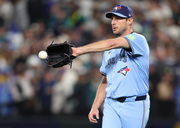
$22M Yankees Star’s Competence Questioned as Top Insider Blasts Brian Cashman’s Worst Offseason Move
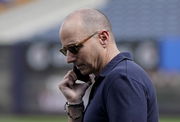
Blue Jays Warned Against Costly Misstep As Bob Nutting Weighs Dumping Paul Skenes’ Teammate
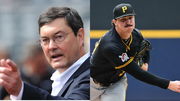
Orioles’ Framber Valdez Hopes Take Major Hit as $1.6B Rival Prepares Bold Move, per Insider

Freddy Peralta Breaks Silence on Mets Future After David Stearns Risks Early Loss
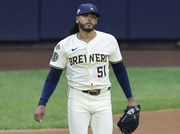
So yes, baseball has a long memory and a short fuse. That’s why Rob Thomson’s decision not to retaliate turned so many heads—it wasn’t just restraint, it was a quiet revolution. And maybe that’s where the game is headed. In an era where careers hang on a single pitch, the Phillies chose purpose over pride. It’s not that the fire is gone, it’s just burning smarter. In a way, Thomson’s decision may have done more damage with patience than a brushback pitch ever could. Because sometimes, the loudest statement in baseball isn’t a fastball to the ribs, it’s the discipline to not throw it at all.
ADVERTISEMENT
In the end, the Phillies didn’t just walk away from a fight. They redefined what strength looks like in a game built on grudges, and that might just be the boldest play of all.
ADVERTISEMENT
ADVERTISEMENT
ADVERTISEMENT